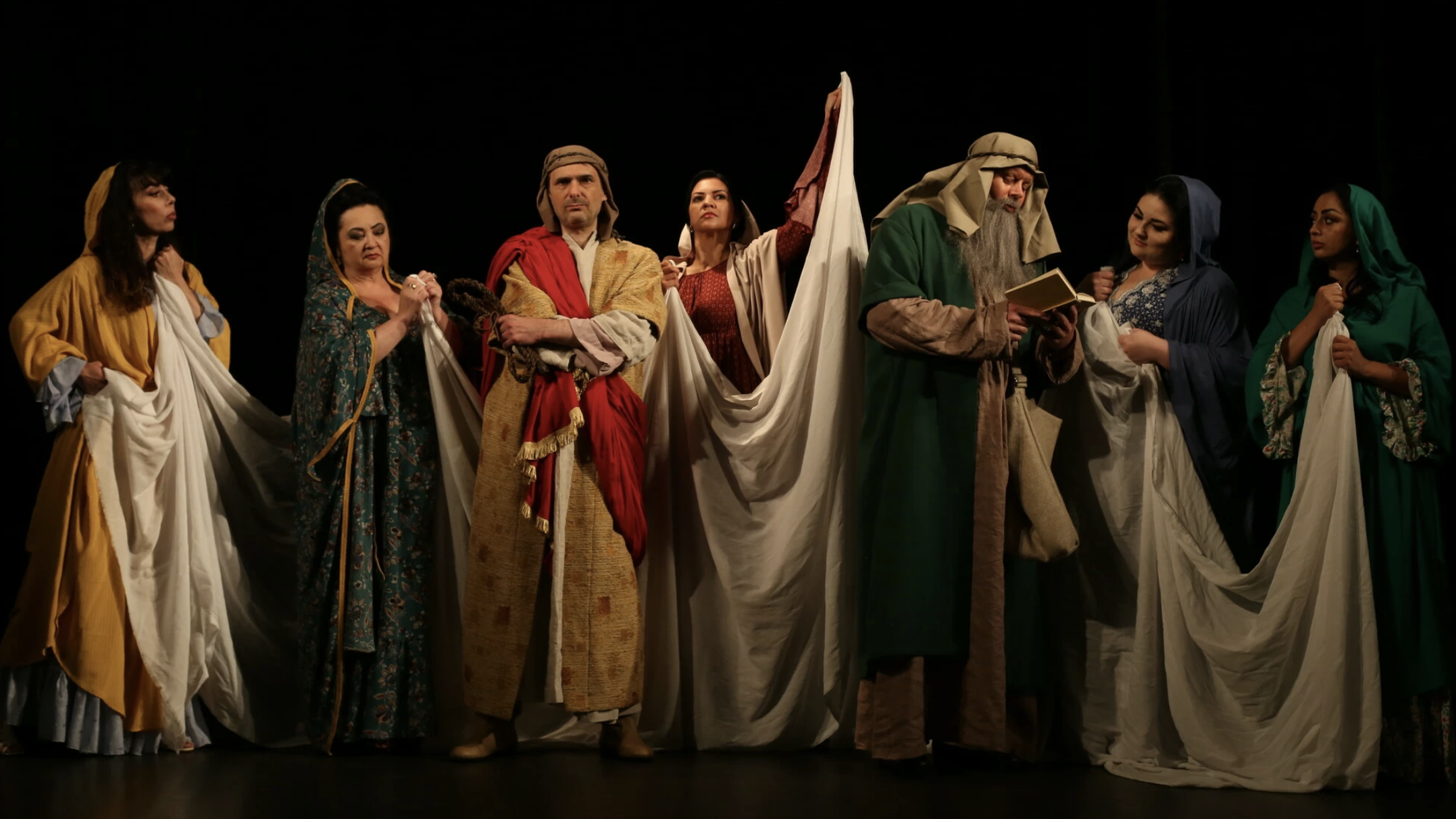Roma theatre companies can be found in several European states. But are Roma theatremakers—who represent the largest ethnic minority in Europe—also present on mainstream theatre stages? Not quite. The small state of Hungary has a large Roma minority of about 10% but an almost exclusively white theatre. Roma are also absent from theatre-related higher education in Hungary. Independent Theater Hungary, a Roma-Hungarian theatre company, is hopefully setting a new standard by publishing the volume Roma Heroes: Five European Dramas. By selecting five Roma stories and plays from five different European countries, this collection aims to support Roma theatre artists’ quest to become more visible.
Theatregoers and professionals often describe the Independent Theater as the “Roma Theater,” though this is far from accurate. Rodrigó Balogh, director-playwright and founder of Independent Theater, has stated that the theatre aims to focus on similarities between Roma and the rest of Hungarian society. Through its programming, the Independent Theater models a state in which Roma and non-Roma play, learn, and work together. In that sense it represents an emancipatory move: a prefigurative political model of a multicultural Hungary. Independent Theater is acting against the reproduction of exclusionary practices of the majority culture. The group uses radical imagination, not only on the level of performances but also on the level of operations, by imagining and operating a multicultural theatre culture. By its very existence, this small company pre-enacts a larger-scale future for the Hungarian mainstream, one in which the Roma and the non-Roma work together to achieve the ideal multiracial and multicultural state of theatre.
Part of this mission is the annual Roma Heroes International Theater Festival, which Independent Theater has organized since 2017. This festival presents various Roma artists from across Europe. According to Rodrigó Balogh, when the company was formed they felt as if they were in a ghetto—as no other Hungarian theatre companies collaborated with Roma artists in the country—but couldn’t believe there were no Roma companies that would raise their voice to talk about their community’s issues. For that reason, Independent Theater started to look for companions globally. In the first year of the festival, they found several professional European Roma theatremakers and groups. Since then, these festivals have showcased Roma artists and groups from various European states: Romanio Svato from Vienna, the ART HUB in Bucharest, Mihaela Dragan with the Giuvlipen Company from Romania, and others. Each work features Roma self-representations—Roma characters with whom Roma audiences can identify. These characters give voices to a part of European society that is otherwise hidden and make it possible for more of society to find subjects of self-identification in theatre.
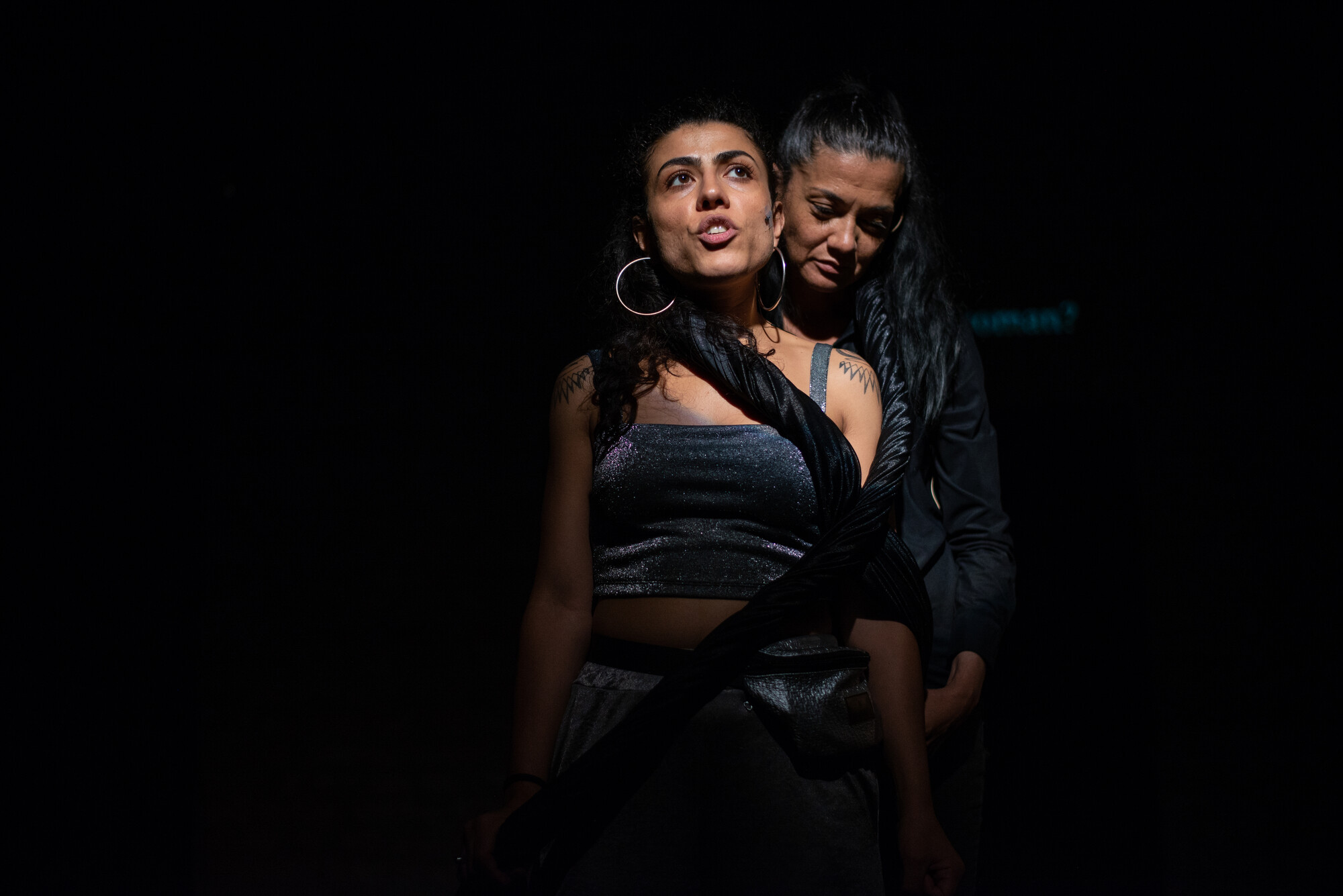
These festivals form the basis of the two drama collections published by the theatre company. The first volume, Roma Heroes: Five European Monodramas(2019), involved five texts of solo performances that showcase confessions by Roma authors and performers, while the second volume, Roma Heroes: Five European Dramas (2021), collects dramas of several acts with multiple characters. As Tamás Szegedi, applied theatre artist and leader of the Independent Theater’s youth program, points out in the preface of Roma Heroes: Five European Dramas, this switch from solo shows to multi-character dramas is important, as dramas are perfect tools to portray opposing perspectives. These plays help audiences confront different views and build empathy, which is of high importance in our polarized world. This is the long-term goal of the Independent Theater as well: to change the way people think about “the unknown”—especially the Roma—by getting to know these communities.
Beyond Stereotypes: Five Roma Dramas
The second volume of Roma dramas presents both old and new contributors of the Roma Heroes International Theater Festival. This collection provides various Roma self-representations by Roma artists, writers, and performers. Taken together, these five plays offer vital alternatives for the usual Roma-stereotypes one can see on Hungarian stages.
Richard R. O’Neill, a consistent member of the festival, is the contemporary storyteller behind European Family. O’Neill, who is from the United Kingdom, comes from a Traveler family with a long cultural background of storytellers. In 2020, he collaborated with other performers of different nationalities to use storytelling to sensitize audiences towards alternative ways of Roma lifestyles. The result of that process, European Family, exemplifies the festival’s contributions to international collaborations: O’Neill worked collaboratively with Sonia Carmona Tapia, Lucia Lakatos, Sebastiano Spinella, Tamás Szegedi, and Jaime Vicent Bohórquez. Their method included improvising zoom-calls with different members of a fictional family living in different parts of the world. Through this family, the piece showcases various contemporary types of Roma characters—from the traditional, romantic Traveler (like O’Neill’s ancestors) to the contemporary Roma woman who articulates nuanced criticism towards her own community.
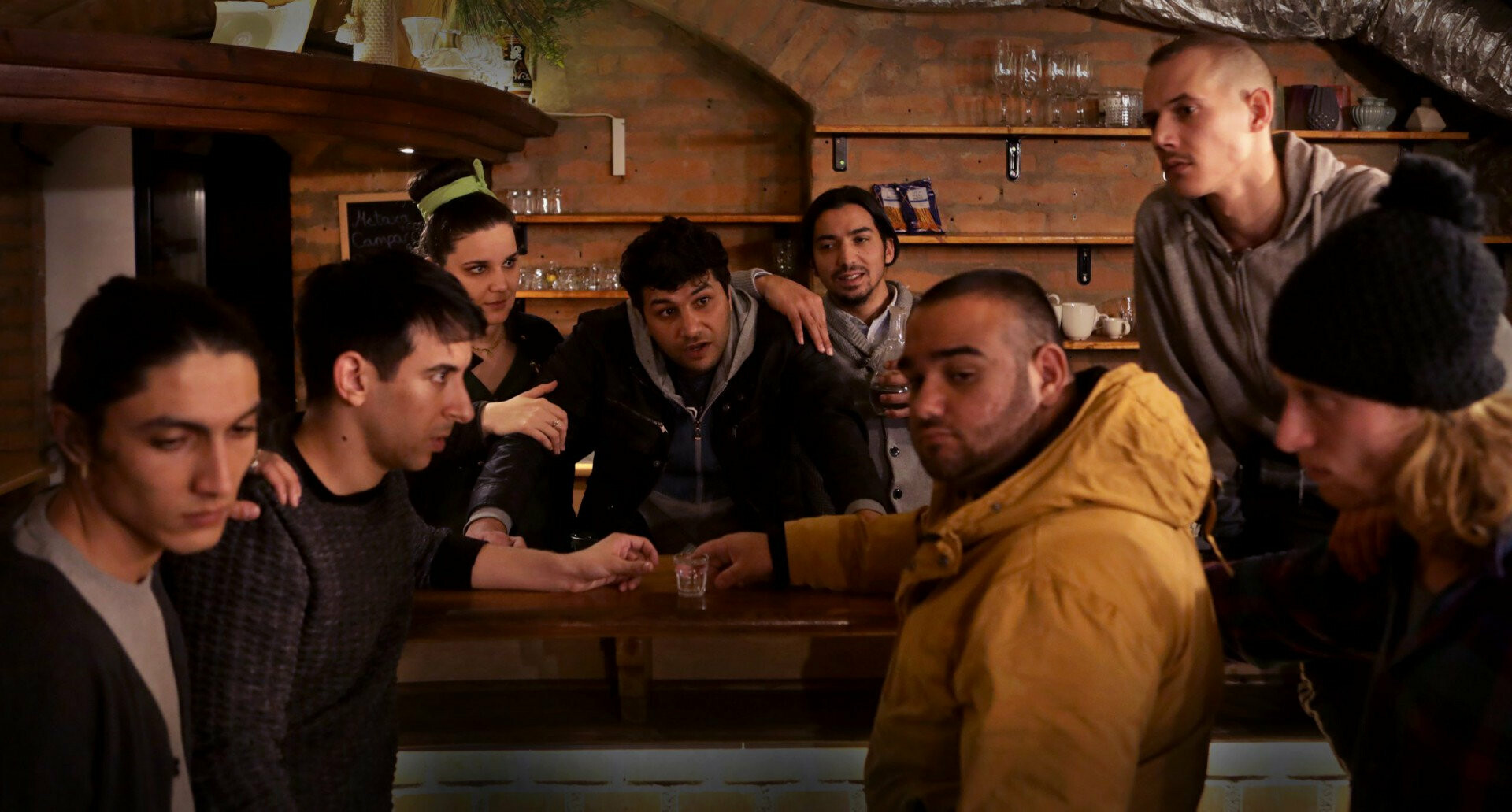
Who Killed Szomna Grancsa?, written by Mihai Lukács, Mihaela Dragan, Zita Moldovan, and Liana Ceterchi, discusses feminist problems. This tragic, revolutionary play, produced and developed by the Romanian Giuvlipen Company, is based on a true story about an ethnic Hungarian Roma teenager from Hargita, Romania. The play calls Szomna Grancsa the first “little Gypsy girl in Frumoasa village who dared to wear jeans”—a teenager who was the only Roma girl from her village to attend school, but who died by suicide before graduation. Before she died, she left an inscription: “I am the school.” The play investigates the possible murder of the girl in a poetic style, portraying a Roma girl whose desire to study goes against both Roma stereotypes and her family’s will.
The Leader, translated by Marie-Josée Sheeks, is an alternative Fiddler on the Roof. It portrays Roma youngsters who intend to follow different routes than their ancestors did—turning against traditions, choosing romantic love instead of arranged marriages. The play processes the genocide committed by the Ukrainian and the Romanian states at the time of the Second World War. The piece was adapted for the stage by Kyiv-born Igor Krikunov, founder of the Ukrainian Roma institution Romance Theatre. Krikunov worked with an initial version of the play called Gypsy Heaven, which was written in the early 1990s by Russian theatre director Edgar Egadze; that play was, in turn, based on the 1968 Romanian novel Șatra. The Leader is a Volksstück—or a musical working with commedia dell’arte character types—featuring villains and a responsible leader who guides his people under brutal circumstances. Their wandering caravan becomes a universal symbol for permanent roaming and escaping of the Roma. Most importantly, the play is a rare example of the under-discussed Roma Holocaust.
The volume’s other history play is Kosovo Mon Amour. It was translated by Anna Lengyel, the late dramaturg who founded the PanoDráma, the first verbatim company in Hungary. Although playwrights Ruždija Sejdovič and Jovan Nikolič now live in Germany, they were born in the post-Yugoslav countries where their play takes place. Through this play’s personal perspective on the war in Kosovo, it breaks the European—and even global—silence about the largest genocide against the Roma since the Second World War. By dramatizing the life of a Roma family, Kosovo Mon Amour analyzes the place of the Roma in a society where combat between the Serbs and the Albanians leaves no room for them to freely identify as Roma. The play spans various languages, reflecting the different languages used in the places where it is set. Still, in one scene, a census-taker accepts no such answer as “Roma”: one must be Serbian, Turkish, Gorani, Albanian, or Skipetar. Identification is not self-determined in Kosovo during the war, especially not for a Roma. Kosovo Mon Amour depicts the brutality of the Kosovo War that European communities have silently accepted. The Independent Theatre was one of the first companies to adapt to the COVID-19 pandemic by performing this play online in the spring of 2020.
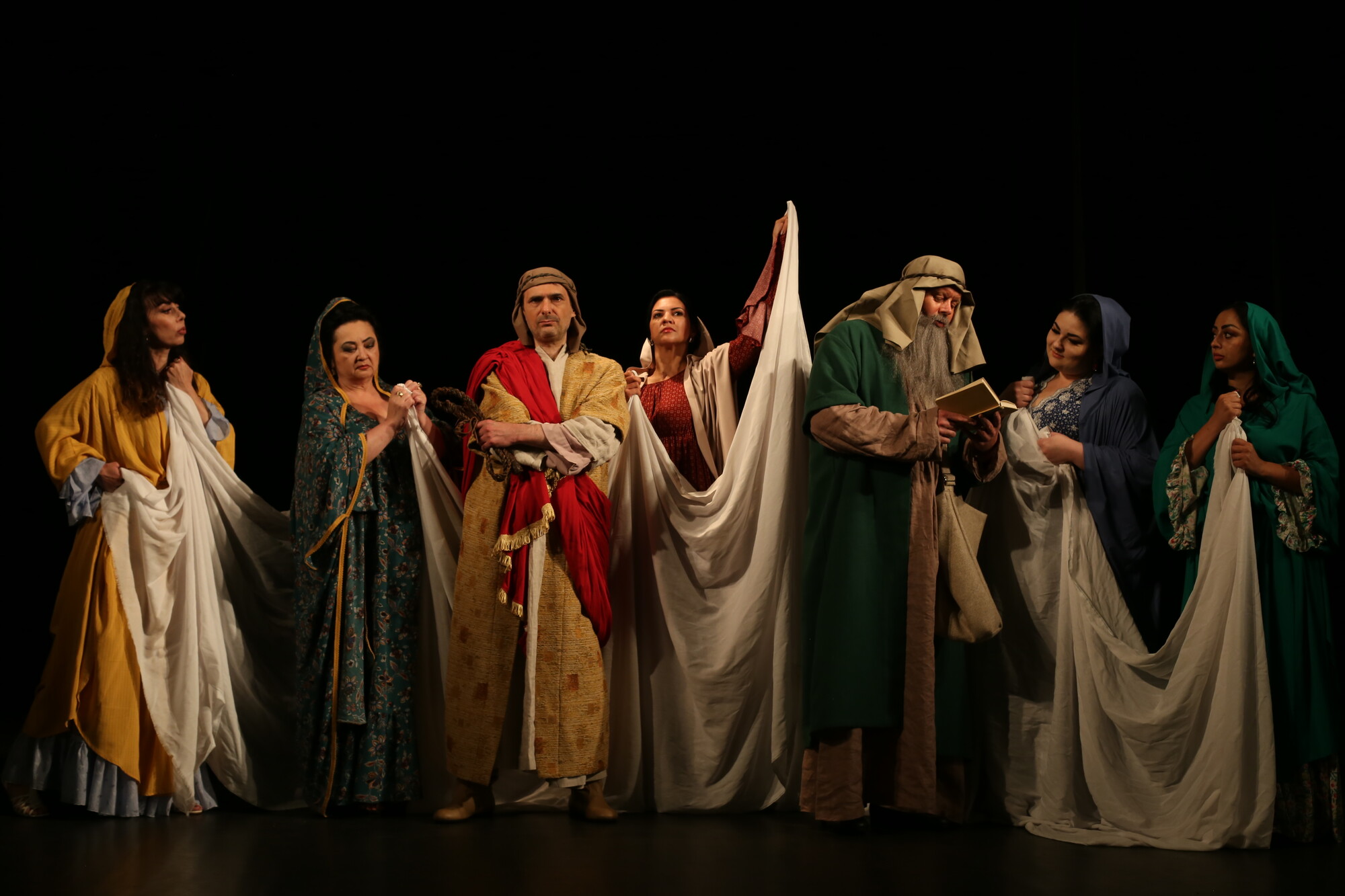
Village Day became another example of how easily the company adapts to new circumstances when it played in open air on Gellért Hill. For that reason, Independent Theater was one of the first Hungarian companies to perform after Hungary’s first Covid lockdown. The play, which was also translated by Anna Lengyel, was directed by Rodrigó Balogh and written by the artists of the Independent Theater: Rodrigó Balogh, Tamás András Szegedi, and Márton Illés. It tells the story of Mara, a money-lender in a society where usury is illegal, who tries to help and to live in a world that only offered her this way of survival. Although her profession is rarely portrayed in drama—and even then, only pictured as a villain on the Hungarian stage—Mara is a complex character in Village Day. She is the prisoner of the same system she uses against (and for) her clients. Instead of appointing a single villain, Village Day shows the system maintaining poverty.
These five plays are Hungarian, Romanian, Ukrainian, Yugoslav, and English texts, set in times ranging from the nineties to the very recent past. They portray different aspects of being Roma in Europe during the last hundred years. By showcasing a variety of Roma characters in different times and places, these plays show how varied Roma communities are. These self-representations of European Roma communities can be valuably used in secondary and postsecondary education to get closer to these individuals and communities. By staging new, diverse types of Roma realities, these plays crucially support Independent Theater’s efforts to prepare mainstream stages to welcome more Roma theatre in the future while offering models for self-identification to Roma and non-Roma audiences alike.
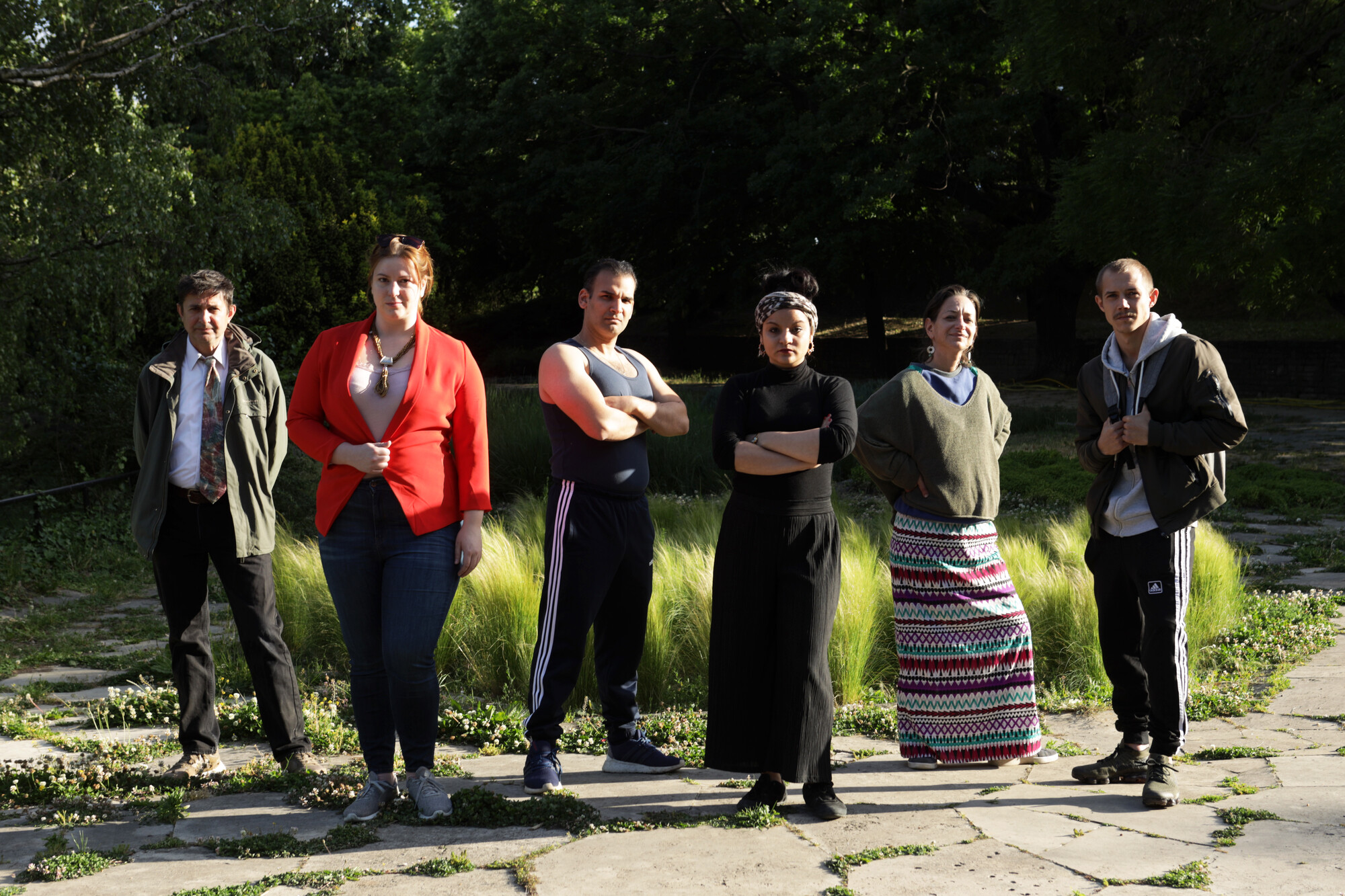
You can livestream this year’s festival on HowlRound. Look out for our article on this year’s productions to be published next week.
Extended Play is a project of The Civilians. To learn more about The Civilians and to access exclusive discounts to shows, visit us and join our email list at TheCivilians.org.


